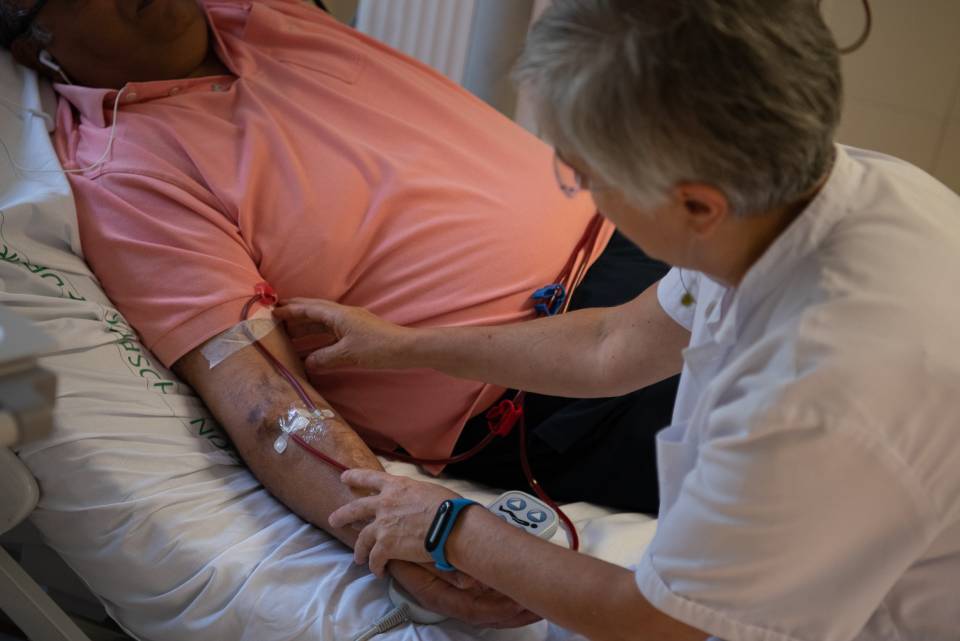Patients with advanced chronic kidney disease, particularly those who require renal replacement therapy such as a kidney transplant or dialysis, are susceptible to catching infections, and COVID-19 is no exception. It has been observed that tocilizumab may be effective in treating those who present respiratory distress due to COVID-19.
The majority of patients with chronic kidney disease who are also receiving renal replacement therapy (RRT) are patients who are especially susceptible to contracting different infections. These patients may present multiple diseases at the same time, and their immune system is much more fragile than that of a healthy person. For these reasons, it is important to evaluate these specific groups of patients to be able to design protocols for their monitoring and treatment during the SARS-CoV-2 pandemic.
To this end, in March, the Spanish Nephrology Society (SEN) launched a register for patients receiving renal replacement therapy (RRT). In just three weeks, a total of 868 patients on RRT with SARS-CoV-2 infection (confirmed by PCR) were recorded. RRT patients with the infection mainly came from the three regions in Spain that were most affected by COVID-19: Madrid (36%), Catalonia (18%) and Castilla La Mancha (12%). The RRT patients who were most affected by COVID-19 were those being treated with haemodialysis (63%), followed by kidney transplant patients and, to a lesser extent, patients on peritoneal dialysis. One in three patients had had contact with someone else infected with COVID-19.
Eight out of ten patients receiving kidney treatment who were infected by COVID-19 required hospitalisation, 8% of whom had to be admitted to an intensive care unit, and 23% of affected patients died. The main risk factors associated with greater mortality were advanced age, the development of pneumonia and renal treatment with haemodialysis.
The SEN register has allowed subsequent sub-studies to be carried out, including an analysis of 80 kidney transplant patients infected by COVID-19 who presented acute respiratory distress syndrome. In this study, which involved the participation of the Nephrology and Kidney Transplant Department at Hospital Clínic de Barcelona, patients received treatment with tocilizumab, a powerful anti-inflammatory drug indicated in the treatment of chronic diseases such as rheumatoid arthritis. This type of anti-inflammatory is being studied because, in serious cases of COVID-19, there can be a molecular storm that causes inflammation (cytokines), meaning blocking this has been considered a potential therapeutic target.
The results have shown that kidney transplant patients with acute respiratory distress presented higher mortality (32.5%). Amongst them, those with very advanced age and those who presented elevated inflammation markers were those with the highest mortality. On the contrary, a decrease in one of the inflammation markers (the protein PCR) following the administration of tocilizumab is associated with greater chances of survival. Therefore, tocilizumab may be effective in controlling the cytokine storm in patients with COVID-19, but more studies are needed to prove this.
It is essential to carry out this type of study to find out the specific risk for different groups of patients and thus establish protection mechanisms in the event of possible new outbreaks. It is also important to be able to carry out therapeutic strategies and more suitable monitoring in each case.
Author: Miquel Blasco, Nephrology and Kidney Transplant Service; Clínic Institute of Nephrology and Urology.




